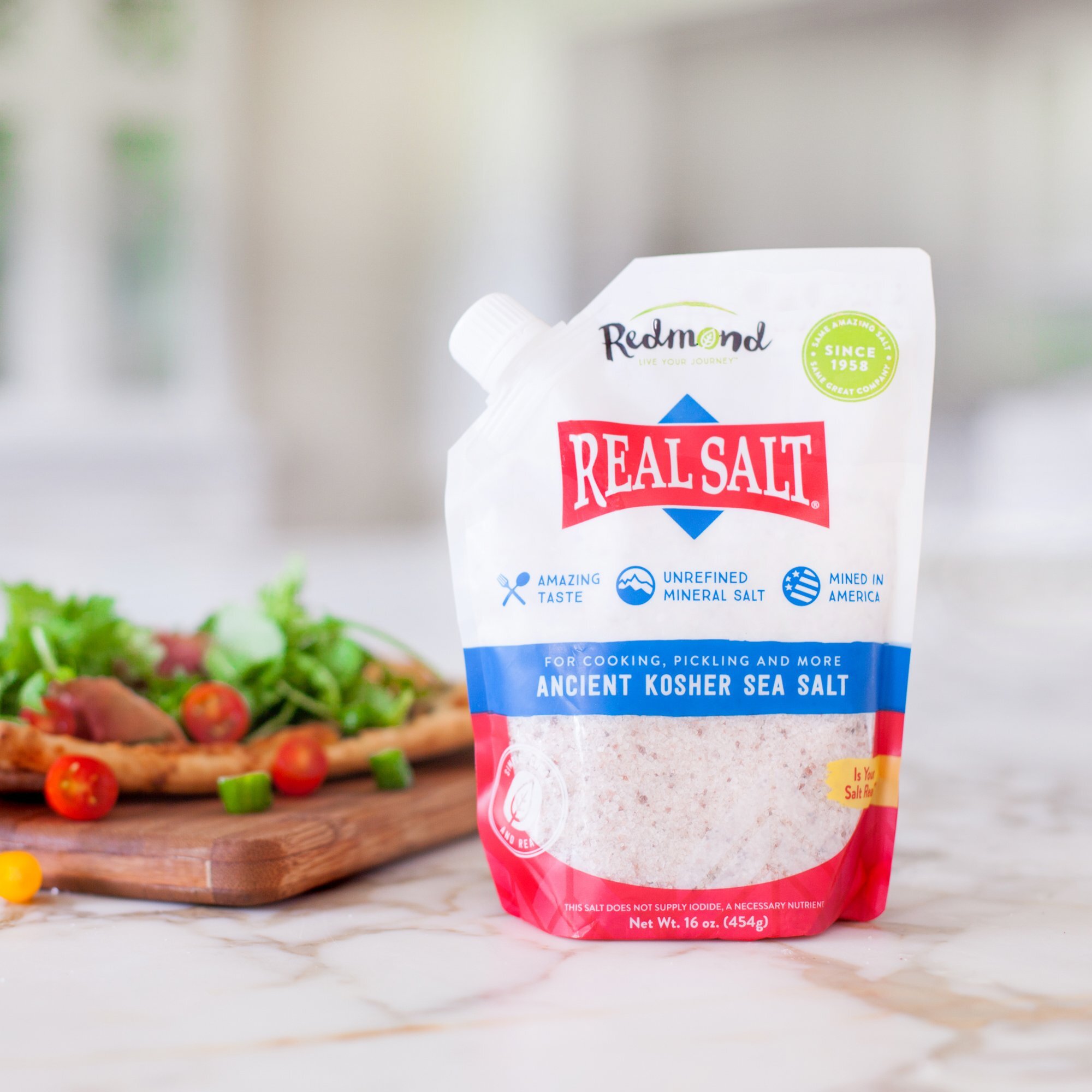Is Salt Bad For You?
Is salt bad for you?
I am sure all of us at one time or another have been told to watch our salt consumption. Whether it was from your doctor or a concerned family member. But the truth is, most of us are not getting enough of this essential electrolyte, and the case for low sodium diets is actually extremely weak.
So how did we all come to believe that salt is a driver of high blood pressure and disease? And what are some signs that you are not getting enough salt in your diet?
The Salt-Blood Pressure Hypothesis
We will get into why salt is good for us and why low salt diets are dangerous, but first, let’s talk about how the idea that salt causes high blood pressure came to be.
The first recommendation to limit our salt consumption came in 1977 from the US dietary guidelines and was not based on scientific evidence, but rather, “expert” opinion. The salt-blood pressure hypothesis has been around since the early 1900s It was developed off a study done on six patients and is as follows:
Eating salt drives the body to crave and drink more water
The water is retained by the body to dilute the excess sodium
This retained water increases blood volume and therefore, increases blood pressure
Which leads to hypertension and premature death
Here is the first reason this hypothesis is not right… The kidneys process about 1,452g to 1,633g (3.2 to 3.6 pounds) of salt per day. Yes, that is a kilogram and a half of salt processed every single day! The average American consumes about 8g of salt in a day. Only a drop in the bucket really. Is 8g on top of 1,500g going to make a difference to our blood pressure? It’s not likely. When we consume less salt, our kidneys reabsorb more of what we already have.
The second fact that totally debunks the salt-blood pressure hypothesis is that clinical studies have shown 80% of people with normal blood pressure do not see any increase to their blood pressure when they consume more salt - none at all! 75% of those with prehypertension and 55% of those wth hypertension are also not affected. For those who are “salt-sensitive” (their blood pressure does increase with salt intake) when they decrease sugar consumption they are no longer affected.
The Importance of Salt
Salt helps keep the correct balance of water in and around our cells and tissues. The salt-blood pressure hypothesis states that water retention from salt is a bad thing, when in fact it is a life-saving mechanism that allows us to survive dehydration.
Sodium is an essential nutrient, meaning we need it to survive. The presence of sodium is key for the contraction of muscles, including the largest and most important muscle, the heart. If you are someone who experiences heart palpitations, upping your salt intake might resolve the issue.
All electrolytes - potassium, magnesium, calcium and sodium, also help regulate the bodies metabolism.
The Dangers of Not Eating Enough Salt
When you are not consuming enough salt, the body activates salt-retaining hormones.
these hormones save your life in the short term but damage your body in the long term by harming vital organs, including stiffening of the heart and blood vessels. Low salt diets have been shown to have numerous negative health outcomes on the body, including:
accelerated hardening of the arteries
compromised kidney function
increased insulin resistance
increased fasting insulin
increased sugar cravings
increased appetite
accumulation of visceral fat
Our biological system naturally drives us to be in a sodium surplus because this prevents dehydration, infection and blood loss. Do not worry about consuming too much salt because our bodies have several mechanisms in place to deal with this - We are meant to be in a surplus!
What Causes Hypertension?
In the book The Salt Fix, Dr. James Dinicolantinio makes a strong case that high sugar diets lead to weight gain, obesity and type 2 diabetes, which in turn cause hypertension.
Several studies have found that when patients lose weight, their hypertension disappears even when their salt consumption remains the same! Limiting sugar consumption is the key factor here.
How Much Salt Should We Consume?
3-6g of an unrefined salt per day, which is equal to 1-3 tsp is the optimal range for most. However, if you are on a low carb diet you will need to consume more. Other factors that might mean you need more salt are:
if you consume a lot of caffeine
during heavy exercise
if you have kidney problems
if you have IBS
if you are taking any diuretics
When you are working out, dosing before exercise includes benefits such as less thirst, greater exercise capacity, improved performance, improved muscle gains, and improved kidney function. Take ½ tsp before exercise, and ½ tsp every hour after.
Salt is critical for our health and our guidelines have got everything backwards. We should not be limiting our salt consumption, we should be listening to our salt cravings. Our bodies are really good at regulating salt, and craving it when necessary.
This website is for general informational purposes only. It must never be considered a substitute for advice provided by a doctor or other qualified healthcare professional. Always seek the advice of your physician or other qualified healthcare professional with questions you may have regarding your medical condition.


